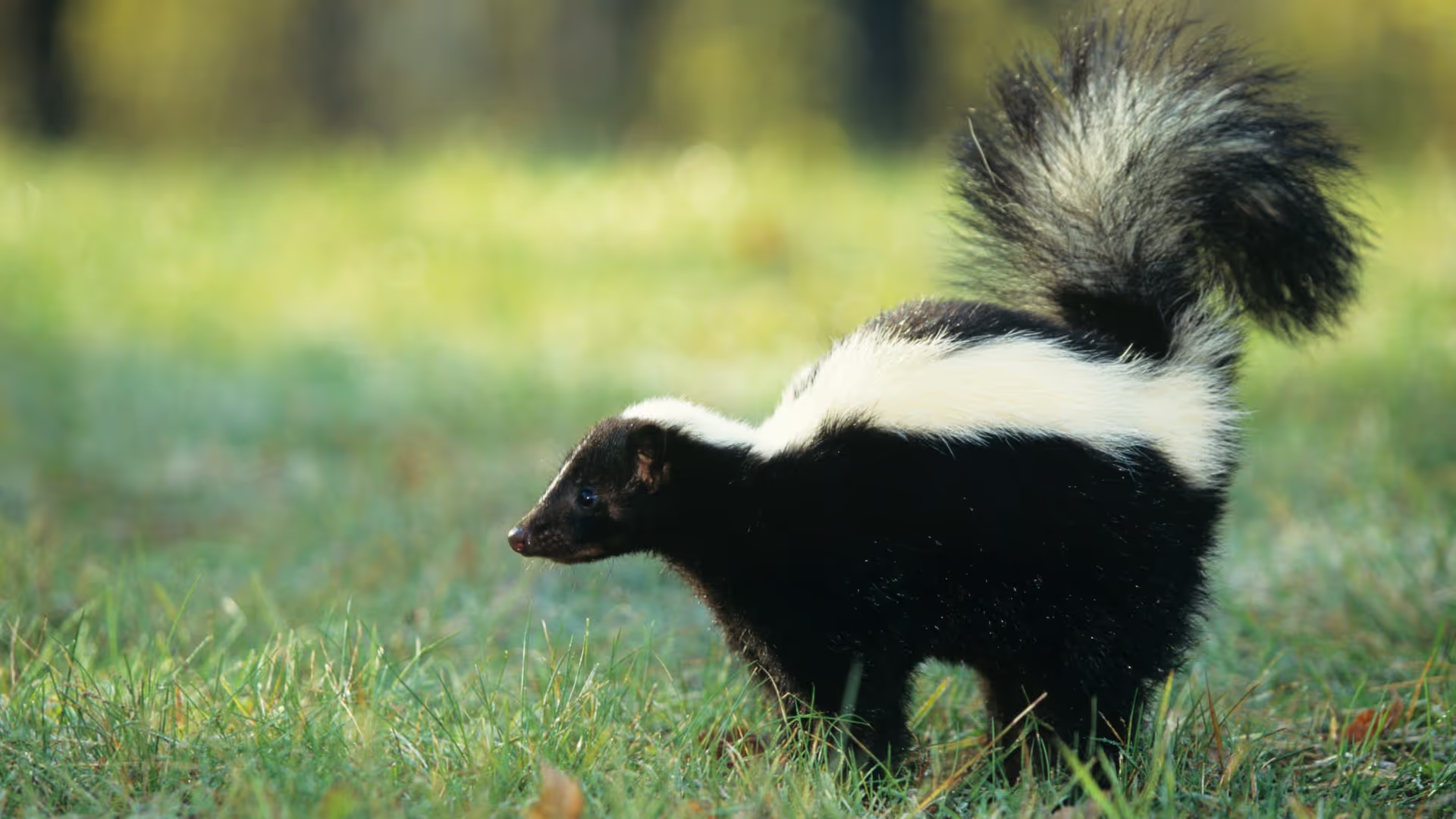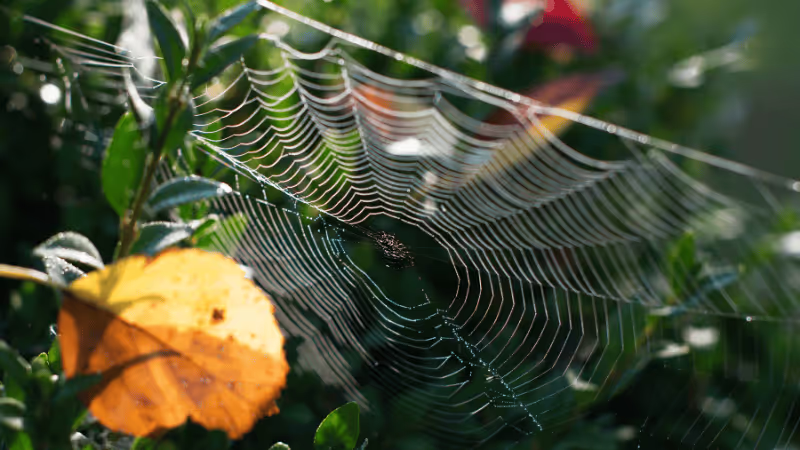Love Stinks. Stop The Stench During Skunk Mating Season This Winter
Why do skunks have bad luck in love? Well, sometimes their love is too intoxicating. Literally.

Valentine's season is here—and along with it, mating season for skunks across New England. The recognizable black-and-white-tailed critters are partnering up in anticipation of warmer days during the springtime.
This news might call to mind cute memories of the oh-so-charming Pepé Le Pew wooing other cartoon animals on Looney Tunes, but trust us when we say that skunk mating season in real life smells anything but cute.
As skunks begin to court each other in backyards and gardens throughout the region, here's your cheat sheet for getting through skunk mating season safely stench-free.
Keep A Nose Out For Skunk’s Annual Mating Season
When: Early February to late March
Once a year, male skunks (also called boars) will wander far from home in search of mates. These stocky pests with short, sturdy legs and long, fluffy tails will begin their search between early February and to the end of March (and occasionally, into early April).
As female skunks (or sows) are pursued, they'll ultimately mate and give birth to "kits" in the late spring (between May and June).
Of course, a litter of kits will only happen when the female skunks find a partner worth their time. Discerning lovers, female skunks have a reputation for being highly selective with their mates. For male skunks, nothing stinks quite like rejection—and we mean that literally.
Skunk Love Is In The Air—And It Has Quite The Scent
Why: Skunks spray to reject unwanted mating partners
Two skunks courting inevitably make a scent-sational couple.
The spoiled cabbage or rotten eggs smell is infamous and immediately recognizable thanks to the sulfur in the spray. Skunks will typically use the spray to ward off threats when they feel vulnerable. As shy pests, they might feel this way in the presence of humans or any other furry companions.
If you encounter a skunk, remember that skunks don’t spray as their first line of defense. Look out for the warning signs first:
- Hissing
- Foot stomping
- Tail raising
If a skunk has shown you these behaviors, know that you’re not far from getting sprayed. Take advantage of the head start and get as far away as you can!
Getting skunked is no fun, but the smell can be neutralized with the right home remedies. Special products and home concoctions of hydrogen peroxide, baking soda, and dish soap are effective against the scent. Our recommendation for a DIY neutralizer is 3 parts 3% hydrogen peroxide, 1 part baking soda, and 1 part dish detergent.
Vinegar, diluted with water, can also be effective in absorbing the smell of skunk spray.
However, during mating season, the most common occurrence of the spray is actually to repel unwanted mating partners. Each time you pick up the scent of skunk spray throughout this time of year, know that a spurned boar is likely nearby.
Look Out For Skunks In These Spots During Mating Season
Where: Underneath your deck or porch, sheds, or basement crawl spaces
Skunks are opportunistic pests, so they thrive in residential areas where food sources are easily sought out.
Not unlike fellow black-and-white nuisance pests the raccoon, skunks will scavenge unsealed trash cans or other sources of food waste left outside for their next meal. After their meal, they'll seek a quiet, dark hiding place.
Underneath porches and decks or in easy-to-reach crawl spaces in a shed or basement are common hiding spots for skunks. If you've caught a whiff of one nearby, look at those areas first to sniff out your invaders.
Skunks Can Leave Destruction In Their Wake
How: Paws and claws designed for digging
During your search, look out for tracks around your property—as well as imperfections in your yard or garden as a result of these notorious burrowers.
Skunks leave long, deep tracks with their five toes and long claws that extend from each digit. They are typically 2 inches long and oval-shaped.
Skunks will also leave half-moon-shaped depressions in the ground as they search for food—in addition to your leftovers, they're also suckers for insects, earthworms, snakes, and other critters. In fact, skunks are omnivorous: a kind way of saying that likely won't turn away whatever you put in front of them.
In conclusion: keep a nose out and be on the lookout for signs of burrowing around your property.
Reminder: Skunks Are Rabies Carriers
Keep in mind: skunks are nocturnal. Seeing them wander around while the sun shines is a telltale sign that something else is wrong.
In New England, skunks are primary carriers of rabies. While skunk spray is certainly a foul problem to deal with, it doesn’t compare to the potential risks of rabies-positive skunks scurrying around your home, your family, and your pets.
A skunk with rabies will also showcase signs of aggression and hypersensitivity. Normally, skunks will be skittish in the face of humans. If you come across one who won’t back down as easily, leave it be and get in touch with pest and wildlife professionals as soon as possible.
Got Skunks? Call In The Professionals To Handle Them Safely
Who: Pest-End’s Wildlife Experts
If you continue to catch the stench of skunks around your property, don't hesitate to contact the professionals—especially if you spot any skunks moving around during the daytime.
With exclusion techniques and trapping strategies that have kept our communities safe and stench-free for decades, we'll make quick work of a skunk infestation and see any fluffy-tailed intruders out safely.
Our licensed wildlife specialists will identify the following:
- Where skunks are hiding.
- The damage they’re doing.
- The best strategy for getting them out.
To keep you and your family out of harm's way, get in touch for a free inspection. We’d love to hear from you during skunk mating season!



